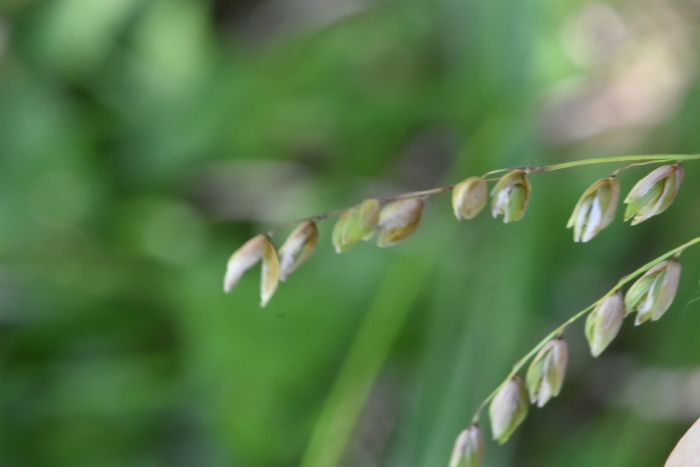Mountain Melick
(Melica nutans)
Mountain Melick (Melica nutans)
/
/

Марина Садыкова
CC BY 4.0
Image By:
Марина Садыкова
Recorded By:
Copyright:
CC BY 4.0
Copyright Notice:
Photo by: Марина Садыкова | License Type: CC BY 4.0 | License URL: http://creativecommons.org/licenses/by/4.0/ | Rights Holder: Марина Садыкова | Publisher: iNaturalist | Date Created: 2021-06-19T12:58:54-07:00 |

























Estimated Native Range
Summary
Melica nutans, commonly known as mountain melick, is a perennial grass species native to temperate deciduous forests, often found in partially shaded areas and on forested slopes throughout Europe and Asia. It thrives at elevations ranging from 330 to 7,550 feet, where it forms part of the understory vegetation. Mountain melick typically grows to a height of 9.8 to 39.4 inches (25 to 100 centimeters) with slender creeping rhizomes that allow it to form loose tufts. The culms, or stems, are erect and bear an inflorescence of 5 to 15 fertile spikelets, each measuring 0.24 to 0.31 inch long, with 2 to 3 fertile florets that are pale green to purplish in color. Flowering occurs from late spring to early summer, and while the flowers are not particularly showy, they add a delicate texture to the garden.
Mountain melick is appreciated for its graceful habit and the soft texture it brings to woodland gardens and shaded borders. It is often used as ground cover or for naturalizing in informal areas. In cultivation, it prefers moist, well-drained soils with a good amount of organic matter and can tolerate a range of light conditions from full sun to partial shade, though it does best in the latter. It is generally low maintenance, but may require additional watering during prolonged dry spells. While not commonly afflicted by diseases, it can suffer from rust in particularly wet conditions. Mountain melick is not known for being invasive and does not typically present problems when grown outside its native range.CC BY-SA 4.0
Mountain melick is appreciated for its graceful habit and the soft texture it brings to woodland gardens and shaded borders. It is often used as ground cover or for naturalizing in informal areas. In cultivation, it prefers moist, well-drained soils with a good amount of organic matter and can tolerate a range of light conditions from full sun to partial shade, though it does best in the latter. It is generally low maintenance, but may require additional watering during prolonged dry spells. While not commonly afflicted by diseases, it can suffer from rust in particularly wet conditions. Mountain melick is not known for being invasive and does not typically present problems when grown outside its native range.CC BY-SA 4.0
Plant Description
- Plant Type: Grass
- Height: 1.5-2.5 feet
- Width: 1-2 feet
- Growth Rate: Moderate
- Flower Color: N/A
- Flowering Season: Spring, Summer
- Leaf Retention: Deciduous
Growth Requirements
- Sun: Part Shade, Full Shade
- Water: Medium
- Drainage: Medium
Common Uses
Border Plant, Low Maintenance
Natural Habitat
Native to temperate deciduous forests, often found in partially shaded areas and on forested slopes throughout Europe and Asia
Other Names
Common Names: Two-Flowered Melic Grass, Nutans Melica
Scientific Names: , Melica nutans, Aira nutans, Dalucum nutans, Melica amurensis, Melica grandiflora, Melica komarovii, Melica montana, Melica montana, Melica nutans f. fissurae
GBIF Accepted Name: